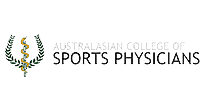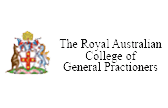Platelet rich plasma (PRP) Injection
What is PRP Therapy?
There are many components of our blood. By spinning a sample of your own blood on a centrifuge, we can separate those components. One of those components that separates is called Platelet Rich Plasma and it is rich in platelets and growth factors which plays an important role in healing tissue. The PRP that is extracted has 5-10 times the concentration of growth factors than normal blood and more than 1000% of the platelets. When used appropriately it can act as ‘fertiliser for tissue repair’. It is important to realise that this is a relatively new therapy. It is known to be very safe but it is not a miracle cure and your doctor will discuss whether this treatment is likely to be beneficial in your situation.
What are the Indications for PRP?
PRP is a relatively new treatment method. It has been shown to be helpful in some recurrent muscle, tendon and joint injuries particularly when there has been a poor initial healing response.
How is Platelet Rich Plasma Therapy Performed?
Your doctor will first draw about 15 ccs of blood from the large vein in your elbow. The blood is then spun in a centrifuge machine for about 10 to 15 minutes to separate the platelets from the remaining blood components.
The injured part of your body is then anesthetized with a local anaesthetic. The platelet-rich portion of your blood is then injected into the affected area. In some cases, your doctor may use ultrasound guidance for proper needle placement.
What is the Post-Procedural Care for PRP?
- It is normal to feel some discomfort at the injection site for a few days after your procedure.
- You will be prescribed pain medications as needed by your doctor.
- You may use cold compresses to alleviate your symptoms.
- You will be instructed to stop any anti-inflammatory medications.
- You may resume your normal activities but should avoid any strenuous activities such as heavy lifting or exercises.
- Your doctor will discuss more detailed instructions with you at the time and answer any questions that you may have
What are the Risks and complications of PRP?
There are minimal risks associated with PRP injections. Some of the potential risks include
- Increased pain at the injection site
- Infection
- Damage to adjacent nerves or tissues
- Formation of scar tissue
- Calcification at the injection site





















